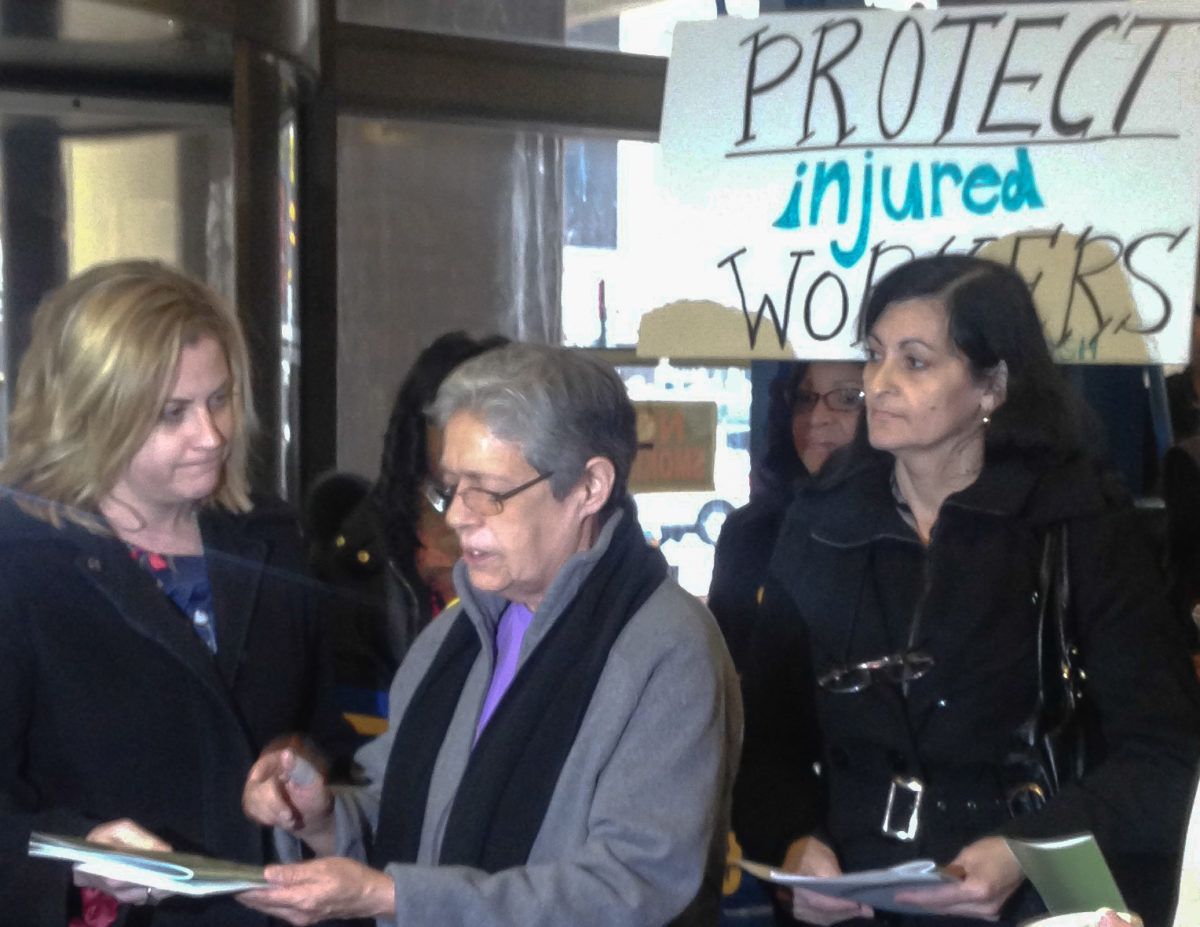Workers Fight For a Voice in New York Workers’ Comp System

Workers’ compensation is a social insurance system that needs a human rights overhaul. Created in large part to limit employer liability, nearly every workers’ comp system—each state has its own—relies on private for-profit insurance companies and employer-financing, which very often puts insurers’ and employers’ interests in direct conflict with workers’ needs and rights.
The New York State Workers’ Compensation system was one of the first of these publicly mandated, private insurance schemes. While the law is supposed to guarantee health care and basic income, in reality the system has been rife with abuses and unconscionable delays that have seriously harmed workers already injured or ill. With no notice to workers groups across the state, last August the New York State Workers’ Compensation Board announced “a sweeping effort” to examine and redesign the system. NESRI is working closely with workers and allies around the state to ensure that this “sweeping effort” focuses on the human rights and needs of workers. In the face of what has proven to be a hurried, often superficial, and highly undemocratic process, NESRI has joined with the New York Committee on Occupational Health and Safety (NYCOSH) to focus the conversation on workers’ human rights, generate public attention, and help build a growing collective of worker’s groups.
The Board had not scheduled a single session with workers or workers organizations before this collective intervention, although it had scheduled multiple rounds of meetings with employers, insurers, attorneys and health care providers. In a too-little, too-late approach, the Board has now met with unions and other labor groups, scheduled three drop-in days for workers at its offices, released a survey, and formed an Injured Worker Focus Group. But outreach to injured workers has been woefully inadequate, and none of the Board’s actions have provided workers with a meaningful opportunity to provide input and generate solutions. Workers have been handed a generic and simplistic survey that missed key points, and the focus group, which did not represent New York’s diverse workforce, was forced to step through a tightly prescribed process that limited its input. In short, the Board wrote the script for workers, not allowing them to speak for themselves.
With press events organized by the Workers’ Center of Central New York and Occupational Health Clinical Centers upstate and NYCOSH downstate, as well as a broadly supported sign-on letter with 20 organizational endorsements, we are beginning to create a platform for demanding injured and ill workers’ human rights be at the center of the Board’s process.
If you would like to sign onto the letter or otherwise support this effort, contact Ben Palmquist of Partners for Dignity and Rights.
